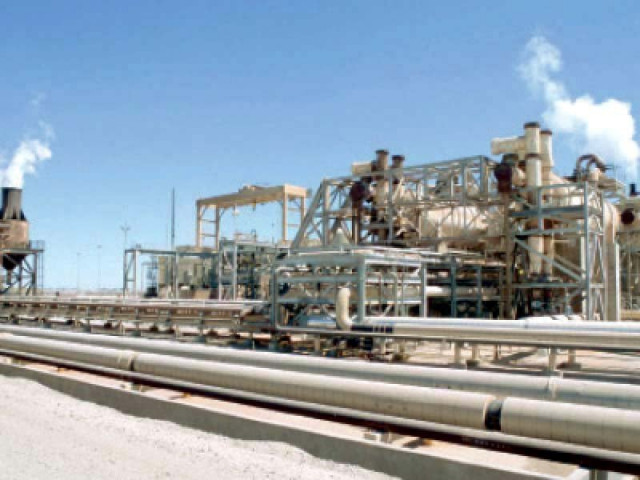OGRA invites firms for CNG licences
Regulator lifts ban on setting up CNG stations, bars them from using natural gas

After a gap of almost 12 years the Oil and Gas Regulatory Authority (Ogra) has officially lifted ban on issuing new licences to set up Compressed Natural Gas (CNG) filling stations, however, the new stations have been barred from using natural gas.
The oil and gas regulator has initiated the process to invite applications for new CNG stations, with a clear warning that the raw material to be used will only be re-gasified natural gas (RLNG).
“The warning is attached with the invitation to apply for new CNG licences, and the applicant has to give an undertaking that they will not claim for natural gas supply even in future,” said an Ogra official, adding, “There have been incidents in the past when the CNG licence holders mainly in Sindh and Khyber-Pakhtunkhwa (K-P) approached the courts of law that getting natural gas was their right as it was produced in their province.”
The ban on issuance of new licences was imposed in 2008, due to serious shortage of locally produced gas in the country. However, the Economic Coordination Committee of the cabinet directed Ogra in the first week of October 2020 to issue only the RLNG based new licences to CNG stations. The ECC directives stated that the CNG stations would neither receive indigenous gas nor can claim to get locally produced gas for conversion to CNG.
Read OGRA grants licences to two virtual pipeline firms
At the same time, Sui Northern Gas Pipelines (SNGPL) announced that after a winter break of 37 days the CNG stations will be opened from 6am Sunday (today). The filling stations have been disconnected in the wake of high heating demand from domestic consumers amid a sharp drop in temperatures across the province.
Currently, gas consumption through the CNG sector was around 188 million cubic feet per day (mmcfd), down from a high of 392mmcfd up to 2011, but the sector witnessed a sharp decline due to natural gas shortage in country.
However, the government has decided to overturn the ban, as the imported RLNG was becoming surplus with the commencement of imports by the private sector. The RLNG consumed by the CNG sector was supplied by the state-owned gas utility companies including SNGPL and Sui Southern Gas Company (SSGC).
Officials in the Petroleum Division disclosed that there was significant support for grant of new CNG licences not only to absorb imported RLNG but also due to the environmental impact of CNG against usage of petrol in vehicles.
“It has been noted that the smoke emissions from the vehicles contributed significantly towards the high smog in Lahore area,” officials added. The CNG sector has welcomed the government’s decision stating that promotion of CNG would reduce urban pollution, cut oil import bill and provide an alternate fuel to the consumers in country.
All Pakistan CNG Association (APCNGA) Central Chairman Ghiyas Abdullah Paracha said that apart from giving permission for licences of new CNG stations the government has also lifted the ban on import of CNG kits.
“The import duty and sales tax at CNG kits have been slashed and the new kits are 15% fuel efficient against petrol at the EFI engine fitted vehicles,” said Paracha, adding, “We expect that the large scale conversions even at public transport will start from the end of next month.” The government has already lifted the ban on CNG conversions in new vehicles in 2019 and with the success of new EFI compatible kits, it is expected that the local auto assemblers too would resume manufacturing CNG fitted vehicles.
Published in The Express Tribune, January 24th, 2021.
Like Business on Facebook, follow @TribuneBiz on Twitter to stay informed and join in the conversation.



















COMMENTS
Comments are moderated and generally will be posted if they are on-topic and not abusive.
For more information, please see our Comments FAQ